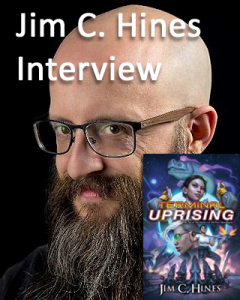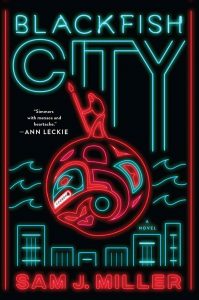 By Ernest Lilley
By Ernest Lilley
Publication: SFRevu March 2019 Issue
Jim Hines is well known (and loved) as a fantasy writer. He’s written about magicians that can pull whatever they need right out of a book (Magic ex Libris), he’s fractured fairy tales (The Princess Series), and he’s given us unlikely heroes (Jig the Goblin), all a little bit different than what you might expect, and leavened with humor, because, as he says, “It’s fun to write.” He’s a past Writers of the Future and Hugo winner, and blogs about a wide range of subjects, including “ topics ranging from sexism and harassment to zombie-themed Christmas carols.”
With his current Janitors of the Post-Apocalypse trilogy, he’s keeping the humor and quirky heroes, but shifting to science fiction. The series is about a starship cleaning crew that wind up the only crewmembers unaffected by a bioweapon that reverts humans into feral savages. Reverts, because a plague had swept through humanity a century before leaving hordes of nearly unkillable but largely braindead humans roaming the globe until an alien race came along with a way to restore some semblance of humanity to them. It’s terrific stuff. Check out our reviews,
Jim took time out from writing the final book in the trilogy to answer a few impertinent questions. Continue reading



